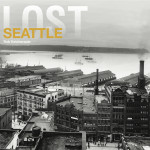3/23.
I'm almost half way through and I'm really impressed by how well this was put together. If the movie rumored for this year really comes out, I'm a bit concerned that people won't understand the context of when this story was written.
I remember several titles from within a year of the Watchmen that in retrospect were some sort of "post-superhero" era of comics.
Watchmen came out in 1986. A year before was Miller's "Batman: The Dark Knight Returns", a future look at an old, bitter Batman who brutalizes criminals in a crime-ridden society. Also in 1986 was "Strikeforce: Morituri", set after an alien invasian and starring a rotating cast of heroes who have been genetically manipulated and will only live a year - it was relatively dark but didn't push censorship. A year later came O'Neill's "Marshal Law", set in post-earthquake San Francisco starring a police officer tasked with killing rouge mutant heroes. In 1988 came Faust, a bloody, gorey, sexual cult mishmash of the Wolverine image placed to the plotline of the Faust novel.
Looking back, it seems that the most gifted writers had given up on straight-forward superhero plotlines and were fighting for a way to express something new. The creators of Marshal Law, for example, wrote out of spite for American hero comics, and wrote a biting, dark, grotesque satire of America. Watchmen came as part of that movement, giving the most complete answer to 'what if they really existed.'
Interestingly Moore did not randomly choose his heroes. The first team of heroes in his universe, The Minutemen, are an obvious take on true WWII era Golden Age teams, DC's Justice Society of America and Seven Soldiers of Victory and Marvel's All Winners Squad, as well as 'retroactive continuity' teams like DC's All-Star Squadron (1981) and Marvel's Invaders (1976) and Liberty Legion (1977). Particularly of interest is JSA, which did not participate in WWII and was together about the same length as The Minutemen. However, a look at the cover of the first issue of All-Star Squadron, which was only a few years earlier than Watchmen, reveals a front-row shockingly similar to The Minutemen.
Crimebusters seems to mimic DC's second generation team Infinity Inc (1983), which is made up of characters mostly decended from JSA/All-Star Squadron members.
I'd like to find a good essay examining the sources of Moore's characters. For example, I don't know if Dr. Manhattan was more influenced by Dr. Solar, or by Molecule Man, or a combination of them over the decades.
The Watchmen is heralded as the best American comic ever. Unfortunately, I think it loses much of its importance when taken out of its context as an American superhero comic. Maybe that's part of the point, though. Rather than looking at the progression of American superhero comics as a product of a changing society, Moore presents a world where instead the existance of superheroes manipulates society.
At some level I think that V for Vendetta is better, simply because it totally ignores the superhero genre entirely. Watchmen definitely took the superhero genre to a new level, though.
3/27
Done. I think the book peaked during monologues by Rorschach in jail and Dr. Manhattan on Mars. Ozymandius' later monologue, for example, was fairly weak, and lacked the insight into the human condition. Likewise, once the plotline returned to Nite Owl and Silk Spectre it got noticibly flat. Is it me? Do I have an overall negative view of the world? Or is it Moore? Does he have an overall negative view, so that his attempts at positive endings seem hollow? I felt the same way at the end of V.

